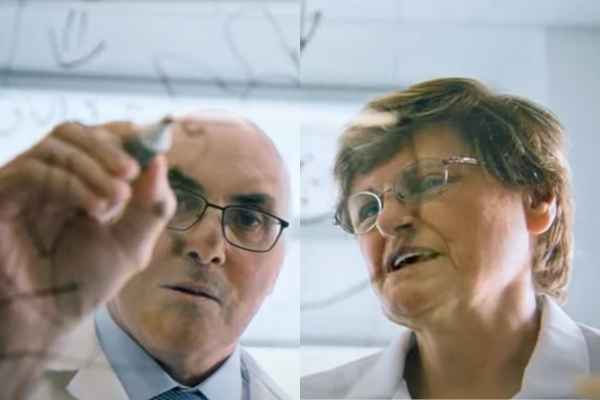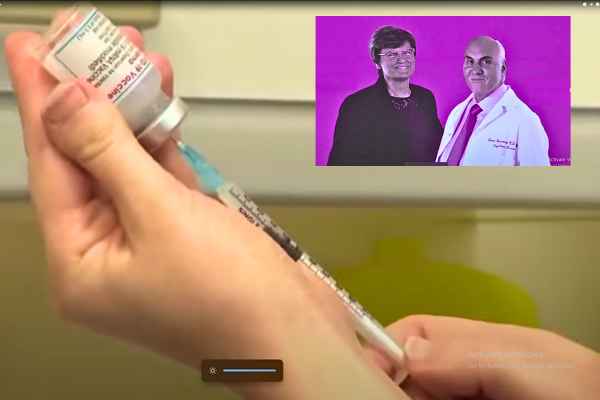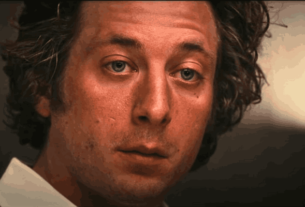Katalin Karikó and Drew Weissman with their tireless efforts and unwavering dedication have forever altered the course of science and set the stage for the development of life-saving mRNA vaccines against COVID-19.
In a groundbreaking moment that reshaped the landscape of medicine and paved the way for humanity’s triumph against a formidable foe, the Nobel Prize in Physiology or Medicine for 2023 was awarded to two brilliant minds, Katalin Karikó and Drew Weissman.
The Dawn of a New Era: mRNA Vaccines Unveiled Nobel Prize in 2023
The world watched in awe as the Nobel Assembly at Karolinska Institutet unveiled its decision to honor Katalin Karikó and Drew Weissman. Their contributions? Nothing short of revolutionary. The award winners were honored “for their findings concerning nucleoside base alterations that enabled the construction of successful mRNA vaccines targeting COVID-19.”
This recognition comes as a testament to the indomitable spirit of human ingenuity and scientific pursuit. Katalin Karikó, a Hungarian biochemist, and Drew Weissman, an immunologist, joined forces to explore the potential of messenger RNA (mRNA) as a therapeutic tool. Their journey was filled with challenges, skepticism, and the relentless pursuit of a vision.
From Doubt to Triumph: The Road to mRNA Vaccines
In the 1980s, the concept of using mRNA for vaccines and therapeutic purposes was nothing more than an intriguing idea. However, numerous obstacles loomed on this path. In vitro transcription, a method for producing mRNA without cell culture, had emerged but was plagued by concerns of instability and challenging delivery. Moreover, in vitro-produced mRNA triggered inflammatory reactions, dampening enthusiasm for its clinical potential.

Amidst these challenges, Katalin Karikó remained steadfast in her belief in mRNA’s therapeutic potential. As an assistant professor at the University of Pennsylvania, she embarked on a mission to overcome these hurdles. Her journey would soon intersect with that of Drew Weissman, an immunologist, who shared her curiosity about how different RNA types interacted with the immune system.
Crucial Discoveries That Redefined mRNA’s Potential
Together, Karikó and Weissman embarked on groundbreaking research, unlocking the secrets of mRNA’s interaction with our immune system. They discovered that in vitro-produced mRNA was perceived as foreign material by dendritic cells, leading to inflammatory responses. This insight was pivotal in charting the course for mRNA’s clinical applications.
Their research presented in 2008 and 2010 showcased that mRNA with specific base modifications significantly boosted protein synthesis while mitigating inflammatory reactions. In essence, they found a way to harness the potential of mRNA without provoking unwanted immune responses.
The Nobel Laureates: Katalin Karikó and Drew Weissman
Katalin Karikó, born in Szolnok, Hungary, in 1955, received her PhD from Szeged’s University in 1982. She later conducted postdoctoral research at various institutions, including the University of Pennsylvania. Drew Weissman, born in Lexington, Massachusetts, in 1959, earned his MD and PhD degrees from Boston University in 1987. He established his research group at the Perelman School of Medicine at the University of Pennsylvania in 1997.
These two remarkable individuals refused to yield to adversity, and their collaborative efforts have transformed the world of medicine. Katalin Karikó’s journey, from facing difficulties in convincing research funders to becoming a senior vice president at BioNTech, exemplifies resilience and determination. Drew Weissman’s dedication to the field of RNA research has had a profound impact on vaccine development.
The Nobel Prize in Physiology or Medicine: A Legacy of Excellence
The Nobel Prize in Physiology or Medicine, established by Swedish inventor and philanthropist Alfred Nobel, honors those whose discoveries have conferred the greatest benefit on humankind. This prestigious award recognizes achievements that transcend the boundaries of science and leave an indelible mark on our world.
Since its inception in 1895, the Nobel Prize has celebrated numerous scientific breakthroughs. The Nobel Prize in Physiology or Medicine has been awarded 113 times since 1901, with 225 individuals receiving this esteemed accolade. Notably, the youngest recipient, Frederick G. Banting, was just 32 years old when he was honored in 1923, while the oldest, Peyton Rous, received the prize at the age of 87 in 1966.
Celebrating Human Achievement
As the Nobel Foundation increases the prize money by 10 percent to 11 million kronor ($1 million) this year, the significance of these awards becomes even more profound. Beyond the monetary reward, Nobel laureates receive a diploma and an 18-carat gold medal, symbolizing the pinnacle of human achievement.
Katalin Karikó and Drew Weissman’s remarkable contributions have propelled science into uncharted territory, heralding a new era of mRNA vaccines and providing humanity with a powerful tool to combat deadly diseases. Their legacy will forever shine as a beacon of hope and a testament to the boundless potential of human innovation.
In the words of Drew Weissman, “I am not a big celebrator, but I would probably go out with my family for a nice dinner.” This understated response encapsulates the humility and dedication of individuals whose work has transformed the world. Katalin Karikó and Drew Weissman’s journey from humble beginnings to Nobel laureates serves as an inspiration for generations to come, reminding us that curiosity, persistence, and collaboration can change the course of history.




